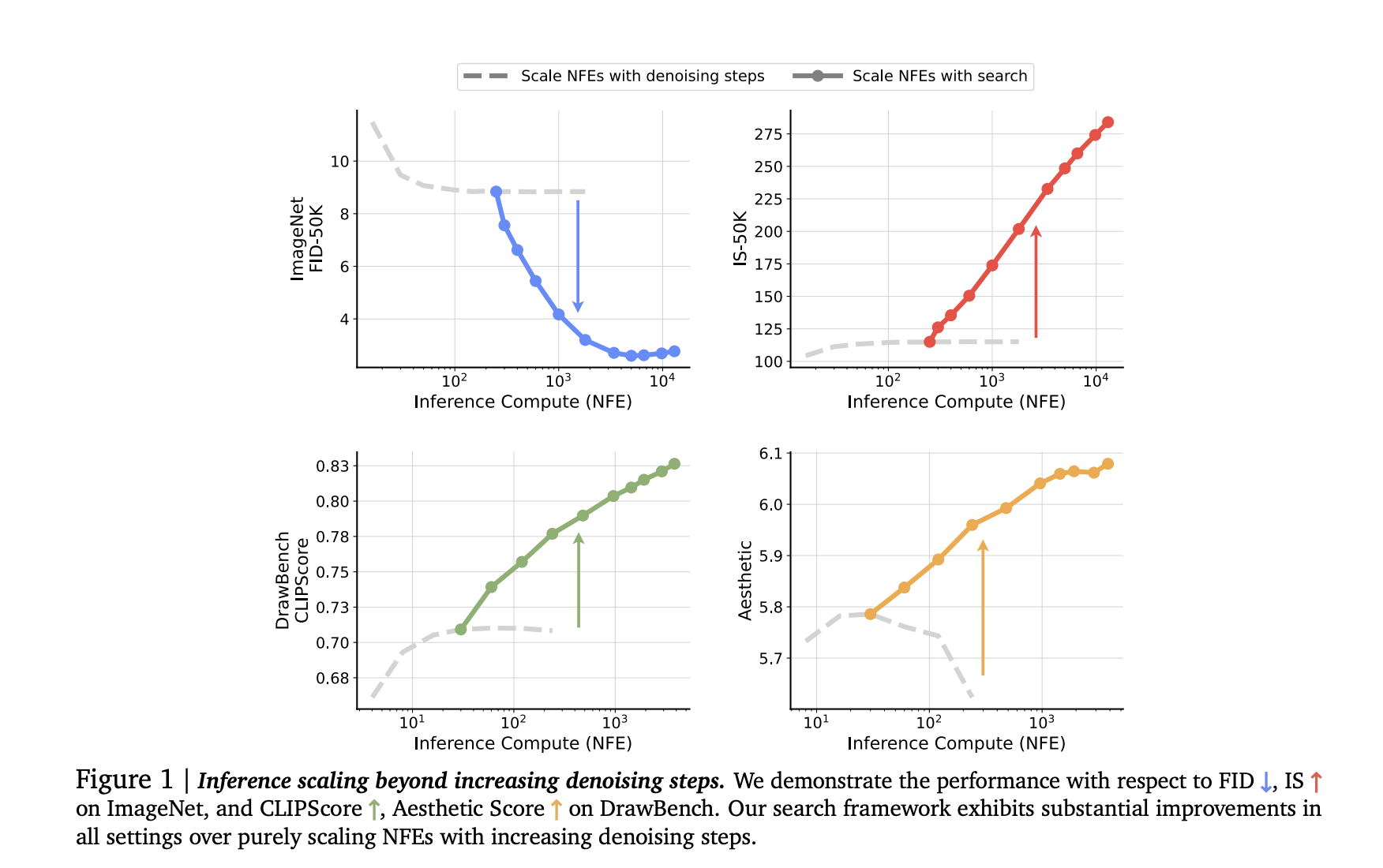
Generative Models and Their Impact
Generative models have transformed areas like language, vision, and biology by learning from complex data. However, they face challenges in improving performance during inference, especially diffusion models, which are used for generating images, audio, and videos.
Challenges in Inference Scaling
Simply increasing the number of function evaluations (NFE) during inference does not yield better results for diffusion models. Traditional methods of adding more denoising steps often do not justify the extra computational costs.
Exploring Solutions
Researchers are investigating various ways to enhance performance during inference, including:
- Improved algorithms for search and verification.
- Fine-tuning and reinforcement learning techniques.
- Sample selection using Random Search and human preference models.
However, these methods mainly focus on training improvements or limited optimizations during testing.
A New Framework for Inference Scaling
Researchers from NYU, MIT, and Google have developed a new framework for scaling diffusion models during inference. This innovative approach goes beyond just increasing denoising steps and focuses on:
- Better noise identification through structured feedback.
- Using algorithms to find superior noise candidates.
This framework is adaptable, allowing for combinations tailored to specific applications.
Implementation Details
The framework is tested on class-conditional ImageNet generation using a pre-trained SiT-XL model. Key features include:
- Fixed 250 denoising steps with additional NFEs for search operations.
- Random Search algorithm with a Best-of-N strategy for selecting optimal noise candidates.
- Two Oracle Verifiers (Inception Score and Fréchet Inception Distance) for performance verification.
Testing and Results
Extensive testing showed that using various verifiers improved sample quality across different setups. Notably:
- ImageReward and Verifier Ensemble consistently performed well.
- Different configurations were optimal for text-prompt accuracy on T2I-CompBench.
Conclusion and Future Directions
This research marks a significant step forward in improving diffusion models. The new framework demonstrates that computational scaling can lead to substantial performance gains. However, it also highlights the biases in different verifiers and the need for task-specific verification methods, paving the way for future research.
Get Involved
Check out the Paper and Project Page. Follow us on Twitter, join our Telegram Channel, and connect with our LinkedIn Group. Join our 65k+ ML SubReddit for more insights.
Leverage AI for Your Business
To stay competitive, consider how the new framework can benefit your company:
- Identify Automation Opportunities: Find key customer interaction points for AI integration.
- Define KPIs: Measure the impact of your AI initiatives on business outcomes.
- Select an AI Solution: Choose tools that fit your needs and allow customization.
- Implement Gradually: Start small, gather data, and expand usage wisely.
For AI KPI management advice, connect with us at hello@itinai.com. Stay updated on AI insights via Telegram or Twitter.
Explore how AI can enhance your sales processes and customer engagement at itinai.com.



























